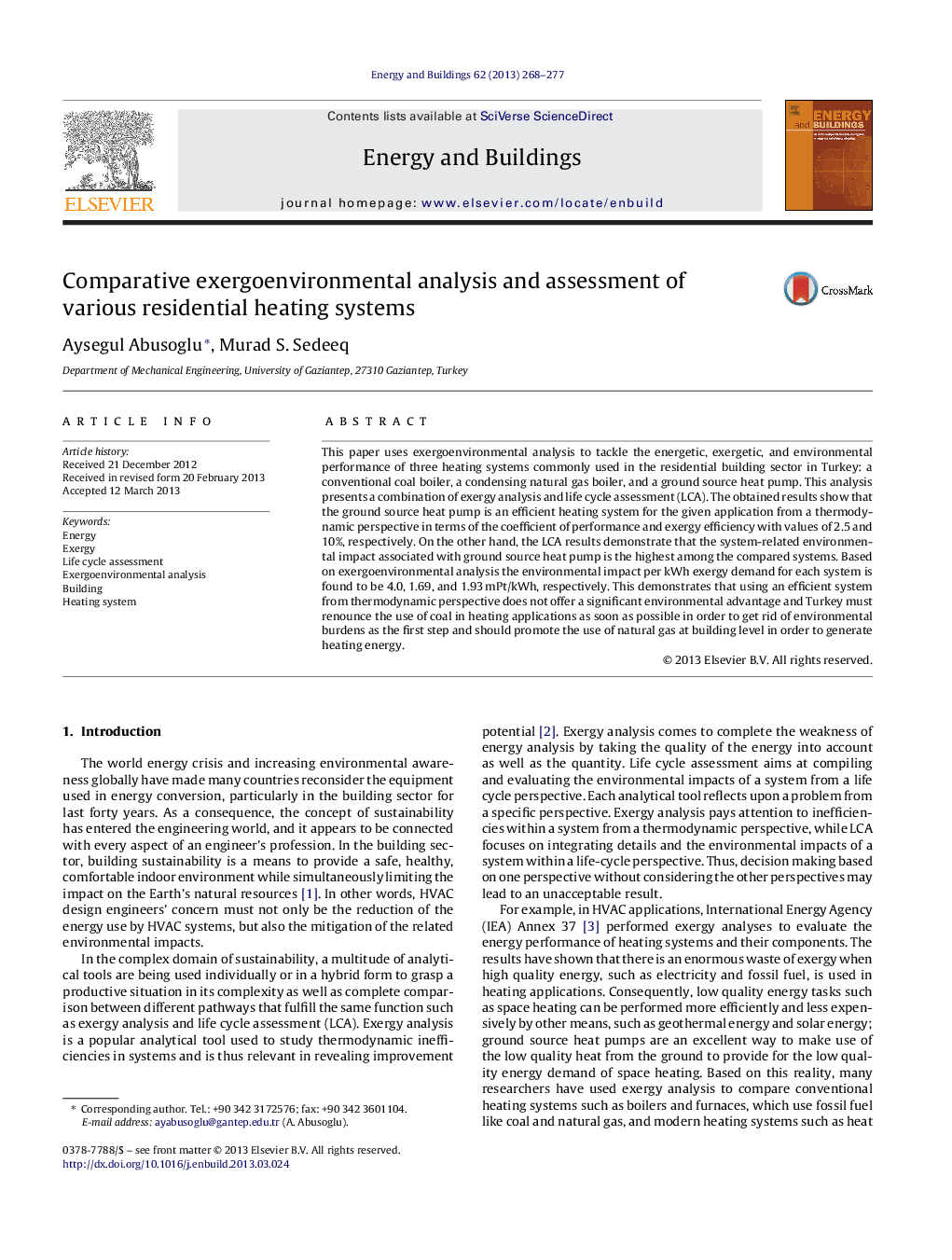| Article ID | Journal | Published Year | Pages | File Type |
|---|---|---|---|---|
| 263286 | Energy and Buildings | 2013 | 10 Pages |
•This analysis presents a combination of exergy analysis and life cycle assessment.•Three most common heating systems in Turkey were modeled and assessed.•The thermodynamic and environmental analyses of models were performed.
This paper uses exergoenvironmental analysis to tackle the energetic, exergetic, and environmental performance of three heating systems commonly used in the residential building sector in Turkey: a conventional coal boiler, a condensing natural gas boiler, and a ground source heat pump. This analysis presents a combination of exergy analysis and life cycle assessment (LCA). The obtained results show that the ground source heat pump is an efficient heating system for the given application from a thermodynamic perspective in terms of the coefficient of performance and exergy efficiency with values of 2.5 and 10%, respectively. On the other hand, the LCA results demonstrate that the system-related environmental impact associated with ground source heat pump is the highest among the compared systems. Based on exergoenvironmental analysis the environmental impact per kWh exergy demand for each system is found to be 4.0, 1.69, and 1.93 mPt/kWh, respectively. This demonstrates that using an efficient system from thermodynamic perspective does not offer a significant environmental advantage and Turkey must renounce the use of coal in heating applications as soon as possible in order to get rid of environmental burdens as the first step and should promote the use of natural gas at building level in order to generate heating energy.
